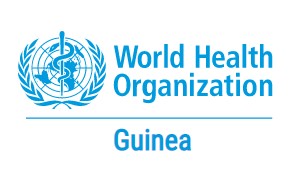Guinea: Bringing care closer to eliminate cervical cancer – African Business
Download logo
For several years many women across Guinea lacked access to screening services for cervical cancer—the most common cancer among women—especially in remote areas. The health authorities made an effort to integrate cervical screening into sexual and reproduction health services. Now thousands of women have the opportunity to be detected early and receive the appropriate support.
October 2021 saw the establishment of 15 additional centres, bringing the total number to 32. Two facilities can treat precancerous lesions. This service will be expanded to all locations.
“To be honest, if this centre weren’t near my home, I don’t think I would have taken the time to go get tested for cervical cancer,” says Nansira Kourouma Traore. The Donka hospital oncological centre has helped the 34-year old Conakry resident.
With support from the United States Agency for International Development, the Kankan regional and prefectural hospitals, as well all the urban centers of Siguiri and Faranah, were equipped for screening for and treating cervical cancer in 2004. A mobile clinic was established to provide screening and referrals to local care centres for villages that are not served by these facilities.
In addition to establishing local screening centres, awareness-raising activities were also used. Traore was convinced to get tested by a radio program.
“The show made a deep impression on me,” she admits.
With a mortality rate 71% and 26.3% respectively, cervical was the most common of all the cancers in Guinea. The majority of cases occur in young women aged between 30 and 49. This has huge social consequences in their prime reproductive years.
The higher the chance of recovery, the earlier cervical cancer is detected.
“Cervical cancer develops silently for at least 15 years if there is no underlying pathology. If in this interval the disease is discovered, precancerous lesions can be treated and the patient easily cured,” explains Professor Keita Namory, head of the Donka Oncology Unit, underscoring that the treatment of precancerous lesions is free in public health facilities.
“When screening is done late, treatment is very expensive and the chances of a cure are slim,” adds the specialist.
In the United States, 85 to 90% of cases were in stages three and four a few years ago. The number of terminal cancers has declined thanks to the growth of screening centres.
“Right now, more than 50% of cases are caught at stage one or two, which improves the chances of recovery,” Professor Namory enthuses.
World Health Organization (WHO) is supporting Guinea’s strategy for the elimination of cervical cancer through training of health workers. 495 people have been certified. The Organization provides logistical, financial, and technical support during the Guinean Cancer Society Science Fairs.
“The improvement of care by integrating cervical cancer screening activities into the minimum package of services offered by health centres and hospitals is the best approach to prevent women from being tested too late. We are working on this with the health authorities,” says Dr Casimir Manengu, WHO Representative in Guinea.
WHO also supported the creation of the Francophone Region Training Centre for the Prevention of Gynecological Cancers (Conakry), a key institution in the prevention of the main types of gynaecological tumors, including breast cancer.
WHO is also providing expertise in the creation of the strategic plan to prevent noncommunicable diseases including gynaecological and other cancers, as well as the development of a National Cancer Charter and the implementation of a National Cancer Control Plan. Local screening centres are an essential pillar.
Traore has been tested every other week for eight years thanks to these centres.
“I got into this habit because screening is free,” she says. “If I had to pay, I wouldn’t be able to afford it.”
Distributed by APO Group on behalf of World Health Organization (WHO) – Guinea.
APO issued this Press Release. APO has issued this Press Release. The content is not under the control of African Business’ editorial team. The content of this announcement is solely at the issuer’s responsibility.
Source: african.business
